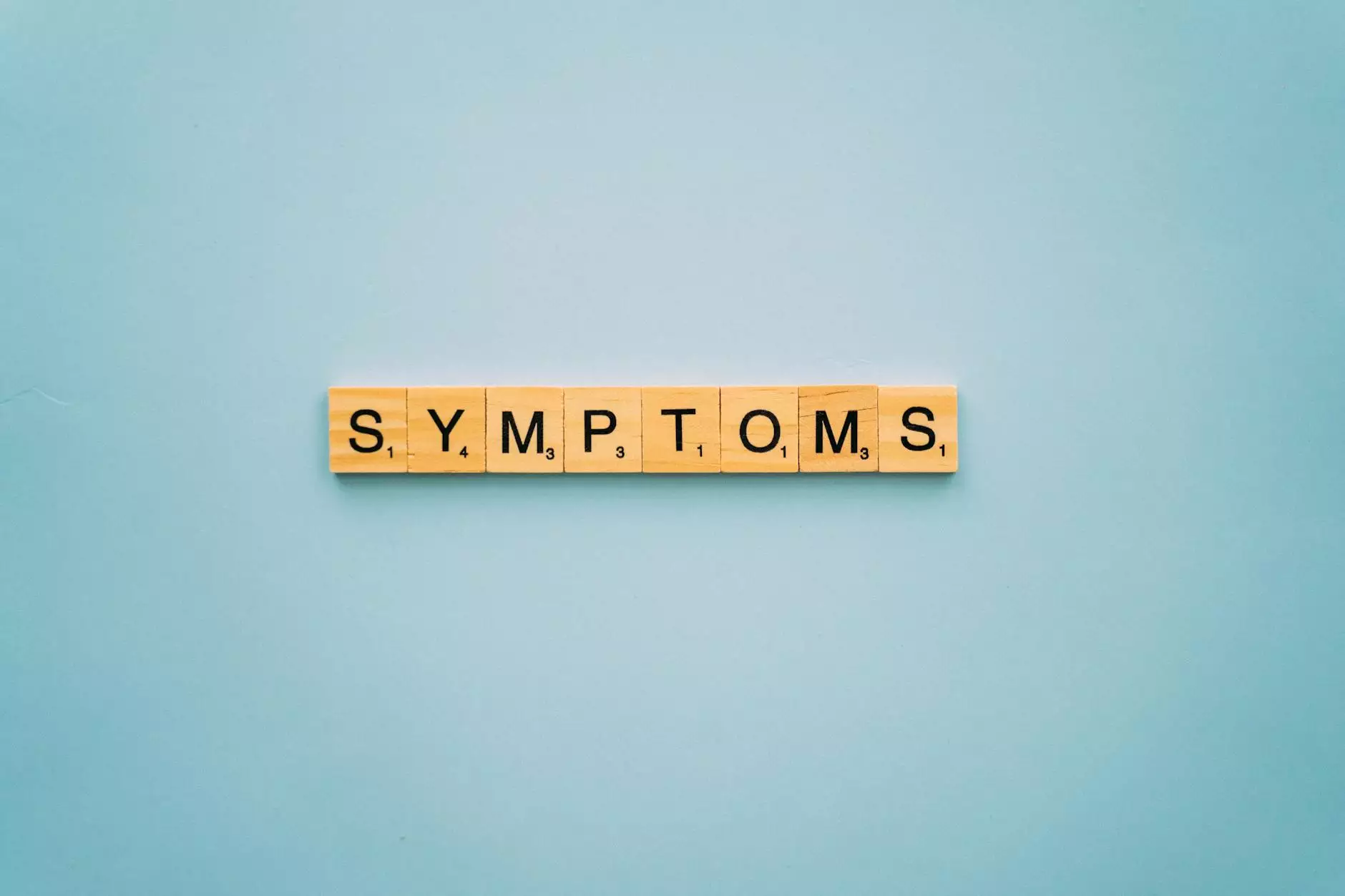7 Symptoms Never to Ignore If You Have High Blood Pressure
About
Introduction
Welcome to Benjamin Shettell, MD's comprehensive guide on the 7 symptoms you should never ignore if you have high blood pressure. As a leading expert in the field of healthcare, Dr. Benjamin Shettell is dedicated to providing you with the knowledge and tools necessary to manage your condition effectively. High blood pressure, also known as hypertension, can have serious health implications if left untreated. By being aware of these symptoms and seeking timely medical attention, you can ensure optimal health and wellbeing.
Symptom 1: Severe Headaches
High blood pressure can often manifest itself with debilitating headaches that are more intense than typical headaches. These headaches may be accompanied by dizziness, blurred vision, or nausea. If you experience severe headaches, it is crucial to consult with your healthcare provider to determine if they are related to your high blood pressure or if there may be another underlying cause.
Symptom 2: Chest Pain
Chest pain should never be ignored, especially if you have high blood pressure. It can indicate a potential heart-related issue, such as angina or a heart attack. If you experience chest pain, seek medical attention immediately. Your healthcare provider will be able to assess your symptoms and recommend appropriate treatment options to reduce your risk and manage your condition effectively.
Symptom 3: Shortness of Breath
High blood pressure can affect your cardiovascular system, leading to difficulty in breathing. Shortness of breath, especially during physical activity or even at rest, should not be taken lightly. It can be a sign of heart failure or other significant complications. Prompt medical evaluation is necessary to determine the cause and provide appropriate interventions.
Symptom 4: Vision Problems
If you have high blood pressure, it is essential to monitor any changes in your vision. Blurred vision or sudden vision loss can indicate severe complications, including damage to the blood vessels in the eyes. Consulting an eye specialist in addition to your primary care physician is crucial to address any potential eye-related concerns and prevent further damage.
Symptom 5: Fatigue and Weakness
Experiencing ongoing fatigue and weakness can be a sign that your high blood pressure is not adequately controlled. It may indicate inadequate blood flow to your body's organs and tissues, causing increased fatigue and reduced physical strength. Discuss these symptoms with your physician to ensure your treatment plan is optimized to manage your blood pressure effectively.
Symptom 6: Difficulty Sleeping and Sleep Apnea
High blood pressure can often be associated with sleep disturbances, such as difficulty falling asleep, staying asleep, or the presence of sleep apnea. Sleep apnea is a potentially serious condition where breathing repeatedly stops and starts during sleep, significantly affecting your overall health. If you experience difficulty sleeping or suspect sleep apnea, it is crucial to consult both your primary care physician and a sleep specialist for appropriate evaluation and treatment.
Symptom 7: Irregular Heartbeat
An irregular heartbeat, also known as arrhythmia, should never be ignored, especially if you have high blood pressure. Uncontrolled high blood pressure can contribute to the development of various cardiac arrhythmias. If you experience palpitations, a racing heart rate, or the sensation of skipped beats, it is essential to consult with a cardiologist to evaluate and manage your condition effectively.
Conclusion
Being aware of the 7 symptoms never to ignore if you have high blood pressure is crucial for maintaining your overall health and ensuring timely interventions. Regular monitoring of your blood pressure and seeking medical attention for any concerning symptoms is vital for effective management of your condition. By partnering with Benjamin Shettell, MD, a trusted healthcare professional specializing in high blood pressure management, you can be confident in receiving expert care and guidance. Take control of your health, prioritize your well-being, and never hesitate to seek medical advice for any symptoms related to your high blood pressure.










